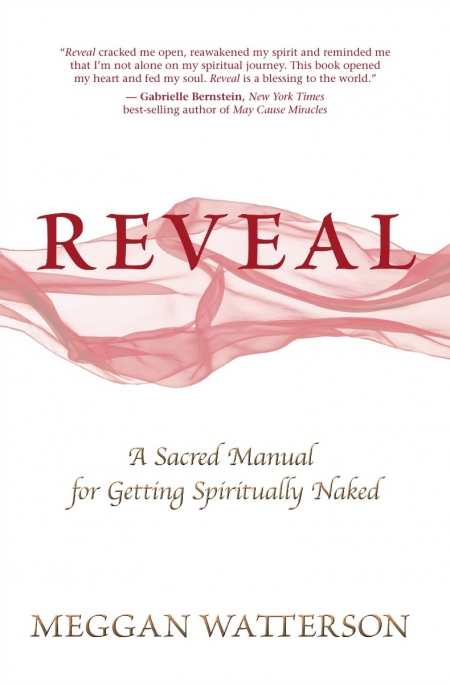Reveal
A Sacred Manual for Getting Spiritually Naked
Author’s distinct, engaging voice unveils the process of returning to herself after systemic alienation from the divine.
Harvard-trained theologian Meggan Watterson’s debut is an intriguing spiritual manifesto, with elements of mysticism, which works to convince women readers particularly that spiritual health is reliant on the ability to connect to, and celebrate, the singularity of the spirit.
“I want you to know that you,” in your particularity, “will never happen again,” she proclaims in the midst of the benediction that closes her work, and she connectedly encourages readers to “be the love that you are,” a significant, if vague, imperative which encapsulates the heart of the project.
It took Watterson many years, and required a plethora of actively pursued experiences, to arrive at the realizations that comprise the seven chapters of the work. She calls the chapters “veils” in allusion to the biblical Salome and her dance of the seven veils. Each step requires radically embracing one’s essential being, making the journey more of a return than a divergence. Watterson’s own encounters with her inner divinity were directed by the realization that women, in particular, are trained to hold themselves apart from the sacred.
Autobiography directs this project as much as feminist theological reflections on the importance of Kali, Magdalene, and the Black Madonna. Readers are invited into Watterson’s circle, concentric to the divinity’s, where she reveals that once she was a child who grinned on the beach and lived freely, embracing her own being without reservations. A series of negative experiences—an assault by an older boy, a Sunday school class realization that “female” and “holy” are held apart—led to a slow detachment from her most authentic self. So Watterson came to join the ranks of women worldwide who have been systematically alienated from themselves, often and obscenely in the name of religion.
But Watterson found her way back, and these chapters are a guide to help other women do the same. Embrace your past fully, she says; arrive at the realization that your body is more sacred than traditions allow. Stop silencing your inner voice; speak freely, in consideration of your innate worth. Open yourself up to the possibility that the divine might speak through you; find your calling, and answer it. And, lastly, immerse yourself in a community of women traveling the same paths, so that you can offer support and receive it, so that the feminine divine might be given a wide space once again.
Watterson’s voice is distinct and engaging. Her invocations of theological minds as diverse as Simone Weil’s and St. Teresa of Avila’s betray her impressive theological training. But what encourages readers to trust her are personal revelations and meditations, from her fear of flying to her reactions to 9/11. Her ability to find holiness in the mundane, even the silly—an encounter with singer R. Kelly makes a play as a moment of pivotal introspection, for example—charms, and infuses these pages with a particularly entrancing flavor.
Even if readers find themselves not yet ready to travel her path, they’ll be delighted at her own steady arrival. This book is a compelling, joyful guide for living authentically, and a journey well worth taking.
Reviewed by
Michelle Anne Schingler
Disclosure: This article is not an endorsement, but a review. The publisher of this book provided free copies of the book and paid a small fee to have their book reviewed by a professional reviewer. Foreword Reviews and Clarion Reviews make no guarantee that the publisher will receive a positive review. Foreword Magazine, Inc. is disclosing this in accordance with the Federal Trade Commission’s 16 CFR, Part 255.

